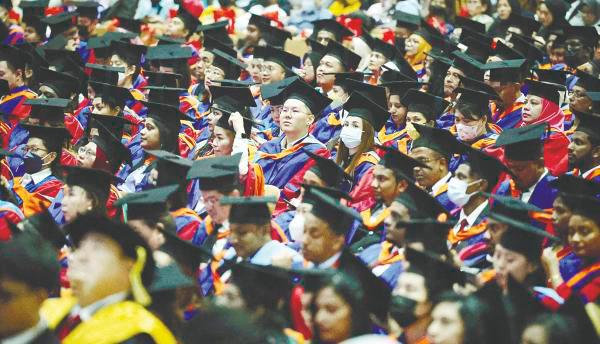WHEN Cikgu Yatt said in her TikTok video “I know why you didn’t finish your work... because you know the teacher won’t punish, hit or scold you harshly like before”, I think she was infuriated.
The viral video was covered by a local newspaper on June 29. I am confident that her intention was not to punish her students, but to encourage them to complete their homework and learn what they should.
Let me extrapolate what Cikgu Yatt said. In the Noble Quran – the book of guidance for mankind – there are warnings and fear of punishment in hell as well as hope for peace in paradise. The Quran is meant to be read and followed by children, youths, adults and the elderly, irrespective of their ages.
Besides those fears and warnings of punishment, Allah makes us all, including children, go through trials and tests in our lives – some lose parents at an early age others struggle in family hardship and suffer from diseases.
Is Allah, the most Learned and Wise, being irrational and harsh to children by scaring them with the punishment in hell or putting them in trials and struggles? No, He is not.
It is natural for humans to need motivation, warnings and struggles to reach their goals in life. The purpose of schooling is no exception.
Many of our colleagues in academia who were students 30 to 40 years ago would agree that during our time we never felt traumatised or upset if we were beaten or scolded by our teachers in school. “Getting punished was normal,” said one of those who commented on the video.
In fact, beating or scolding made us stronger to strive to improve ourselves, albeit, with a few exceptions.
To Cikgu Yatt, students who did not complete their homework seem to lack respect and have lost their sense of shame. To many others, students nowadays appear to be more emotionally “vulnerable”.
The trend of such vulnerability seems to continue at university level. Even postgraduate students feel traumatised if their supervisors are harsh in their criticisms. Students are afraid to look at their draft theses corrected by their supervisors, especially when they contain numerous corrections and stern criticism.
During a viva voce session, it seems to be a trend nowadays for examiners to start their comments by approving the student’s work, saying they have done a “good job” and praising their “hard work.” However, they are expected to do a good job and are supposed to work hard.
Many students now expect to be motivated (or pampered!) before they start their viva, fearing vulnerability otherwise.
However, the viva voce session is not meant for examiners to acknowledge the students’ performance. Its purpose is to examine what they have learned and what they have not.
If the student deserves praise, that will be reflected in the grades given by the examiners, or at best, in the congratulatory notes after the session.
More importantly, the same examiner may not adopt the same tone of acknowledgment for all students attending the viva during the same session, potentially allowing for bias and discrimination.
Students need motivation and encouragement, while it is also important to identify those who are emotionally stable and resilient.
In terms of teaching and learning, many of us in academia agree that current methodologies do not consistently produce students who perform better than we did during our time.
We set fixed learning times and objectives for all students taking a course, almost as if learning beyond those boundaries is haram (forbidden). In contrast, it used to be common for our lecturers to ask us questions beyond the topics they taught, testing if we were interested in learning more. This approach helped identify the most capable students among us.
We are often required to prepare questions using a specific set of verbs from Bloom’s Taxonomy that correspond to a table of learning hierarchy, even though we may not fully understand the original purpose of that taxonomy.
Meanwhile, we do not limit students’ screen time, instead, we encourage them to rely more on screen-based learning.
However, it is worth noting that a lifestyle with increased screen time can have irreversible effects on our health, making us susceptible to epigenetic changes – alterations not related to inherited genetic changes. Many diseases linked to such changes share a common symptom: intellectual disability.
From primary to tertiary education, we are shaping a future generation that not only lacks emotional resilience but also depth of knowledge and vision. Perhaps this aligns with our goal, as it justifies our transition towards a digital world where human workers are gradually replaced by increasingly intelligent machines.
The writer is the associate dean (Continuing Education) at the Faculty of Dentistry, and associate member of UM LEAD at Universiti Malaya. Comments: letters@thesundaily.com









